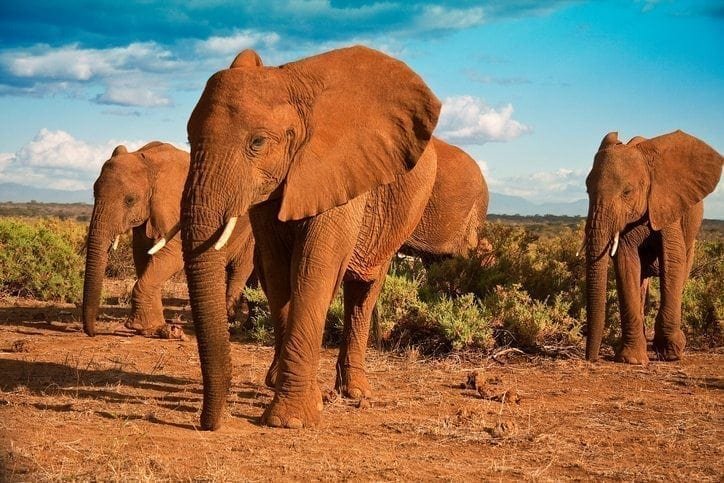The UK government has announcement a much-anticipated public consultation on plans to impose stricter controls on our ivory trade.
In response, campaigners and conservationists have united to call for a global effort to end the illegal ivory trade, which is driving the alarming decline of Africa’s elephant population.
WWF has said that s ban on the UK’s elephant ivory trade ‘must be confirmed within the next 12 months if the country is to maintain its role as a global leader on ending the illegal wildlife trade’.
‘No time to waste’
It’s almost exactly a year until the 2018 London Conference on Illegal Wildlife Trade, where it’s expected that world leaders will agree to strengthen the delivery of international commitments to help eradicate illegal wildlife trade and better protect the world’s wildlife from this threat.
‘The government’s plans show the UK wants to continue to be a leader in the fight to end the large scale poaching of elephants. After campaigning hard to stop the UK ivory trade, we know there’s a long way to go and there’s no time to waste. Whilst discussions roll on, 55 African elephants a day are killed. We need to be the generation that ends the illegal ivory trade once and for all.
‘This illegal trade involving organised criminals is a global problem requiring global solutions: to end it anywhere means ending it everywhere. This is about a lot more than banning ivory sales in one country. It means working with global leaders and communities around the world, particularly in China and south-east Asia, to implement bans and stop the illegal trade.’
TANYA STEELE
WWF CEO
The current law
Much of the ivory trade has already been banned in the UK, but there are some exceptions when trading an ‘antique’, meaning ivory that was worked (substantially carved) before March 1947, or with a government issued certificate for ‘modern’ items, worked between 1947 and 1990. All trade in ivory carved post-1990 and in raw (uncarved) ivory is already banned.
Cristián Samper, CEO and president of the Wildlife Conservation Society (WCS), noted that ‘Illegal ivory hides behind ‘legal’ ivory, and the UK still allows a significant domestic ‘legal’ ivory market.’
Samper added: ‘The implementation of a strict ban without loopholes that traders can exploit is essential in the fight against the poaching of elephants and the trafficking in their ivory. The only way to save elephants, in addition to strong field and enforcement work, is to ban ivory sales to prevent any opportunities for such laundering.’
The UK’s role in the ivory trade
It is estimated that around 20,000 African elephants are killed by poachers for their ivory every year. Although the UK is not considered to be one of the markets that contributes the most to the global illegal ivory trade, evidence has revealed that the UK’s legal ivory market has been used as a cover for trade in illegal ivory.
Evidence of laundering was shown last autumn during the BBC Saving Africa’s Elephants: Hugh and the Ivory War programme. Four of nine ‘antique’ ivory carvings for sale online were found to be illegal, as they were found to be from elephants that had died after the 1947 cut-off date for antiques. Two of nine were illegal as they were older ivory that had been reworked recently.
The UK also makes legal shipments of ivory antiques to Asia, which has the largest ivory markets that are driving the poaching crisis. There has been a dramatic increase in the amount of legal ivory being re-exported from the UK to China since 2005. This shows that the UK’s current policies must be strengthened.
 Play Video about This Rock Might Just Save The World
Play Video about This Rock Might Just Save The World Play Video about Play 2 hours of rock
Play Video about Play 2 hours of rock Play Video about Play 2 hours of brook
Play Video about Play 2 hours of brook Play Video about Play 2 hours of sheep
Play Video about Play 2 hours of sheep











































